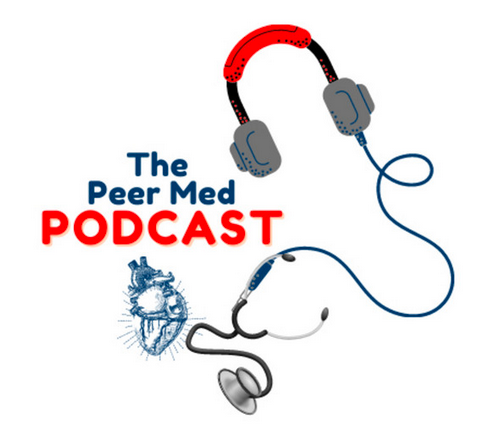A series of briefs by Texas Medical Students
By: Fareen Momin, Sereena Jivraj, and Melissa Huddleston
In the ever-evolving field of medicine, it is no surprise that the idea of leadership in medicine has changed over the years. Some physicians have engaged in additional leadership in the context of politics. In fact, several physicians signed the Declaration of Independence.1 Today, physician community leadership extends much further. Physicians can engage with their communities and beyond via virtual platforms. Physician “influencers” use social media to provide quick answers to patients, and physician-patient interactions on Twitter alone have increased 93% since the onset of the COVID-19 pandemic.2 With physician voices reaching ever-larger audiences, we must consider the benefits and ramifications of expanding our roles as community leaders.
Medicine and politics, once considered incompatible, are now connected.3 There is a long list of physician-politicians, and community members often encourage physicians to run for political office, as in the case of surgeon and former representative Tom Price.4 Physicians are distinctly equipped to provide insight and serve as advocates for their communities.5 Seeking to leverage this position, a political action committee (PAC), Doctors in Politics, has an ambitious desire to send 50 physicians to Congress in 2022, so they can advocate for security of coverage and freedom for patients to choose their doctor.6-7 There are dangers, however, when physicians take on this additional leadership role. For example, Senator Rand Paul (R-Ky.), an ophthalmologist, has spread medical misinformation, telling those who have had COVID-19 to “throw away their masks, go to restaurants, and live again because these people are now immune.”8
It is not practical for even those medical students who meet age requirements to run for office. What we can do is use our collective voice to hold our leaders accountable, especially when they represent our profession. We can create petitions to censure physicians who have caused harm and can serve as whistleblowers when we find evidence of wrong-doing perpetrated by healthcare professionals. We can also start engaging in patient advocacy and policy-shaping with the American Medical Association (AMA) Medical Student Section and professional organizations related to our specialty interest(s).
To avoid adding to confusion, statements by physicians should always be grounded in evidence. Dr. Fauci’s leadership is exemplary in this regard. He has worked alongside seven presidents, led the National Institute of Allergy and Infectious Diseases (NIAID) since 1984, and has become a well-known figure due to his role in guiding the nation with evidence-based research concerning the COVID-19 pandemic.9 Similarly, Dr. John Whyte, CMO for WebMD, has collaborated with the Food and Drug Administration (FDA) to advocate for safe use of medication and to educate those with vaccine apprehension.10 Following these examples, we should strive to collaborate with public health leaders and other healthcare practitioners and to advance health, wellness, and social outcomes and, in this way, have a lasting impact as leaders in the community.
- Goldstein Strong Medicine: Doctors Who Signed the Declaration of Independence. Cunningham Group. Published July 7, 2008. Accessed February 2, 2021. https://www.cunninghamgroupins.com/strong-medicine-doctors-who-signed-the-declaration-of-independence/
- Patient Engagement with Physicians on Twitter Doubles During BusinessWire. Published December 17, 2020. Accessed February 2, 2021. https://www.businesswire.com/news/home/20201217005306/en/Patient-Engagement-with-Physicians-on-Twitter- Doubles-During-Pandemic
- WHALEN THE DOCTOR AS A POLITICIAN. JAMA. 1899;XXXII(14):756–759. doi:10.1001/jama.1899.92450410016002d
- Stanley From Physician to Legislator: The Long History of Doctors in Politics. The Rotation. Published May 15, Accessed February 2, 2021. https://the-rotation.com/from-physician-to-legislator-the-long-history-of-doctors-in-politics/
- Carsen S, Xia The physician as leader. Mcgill J Med. 2006;9(1):1-2.
- Doctors in Politics Launches Ambitious Effort to Send 50 Physicians to Congress In 2022. BusinessWire. Published May 27, 2020. Accessed February 2, 2021. https://www.businesswire.com/news/home/20200527005230/en/Doctors-in-Politics-Launches-Ambitious-Effort-to- Send-50-Physicians-to-Congress-In-2022
- Doctors in Accessed February 2, 2021. https://doctorsinpolitics.org/whoweare
- Gstalter Rand Paul says COVID-19 survivors should “throw away their masks, go to restaurants, live again.” TheHill. Published November 13, 2020. Accessed February 2, 2021. https://thehill.com/homenews/senate/525819-rand-paul-says-covid-19-survivors-should-throw-away-their-masks-go-to
- Anthony Fauci, M.D. | NIH: National Institute of Allergy and Infectious Diseases. Published January 20, 2021. Accessed February 2, 2021. https://www.niaid.nih.gov/about/anthony-s-fauci-md-bio
- Parks Physicians in government: The FDA and public health. American Medical Association. Published June 29, 2016. Accessed February 2, 2021. https://www.ama-assn.org/residents-students/transition-practice/physicians-government-fda-and-public-health


